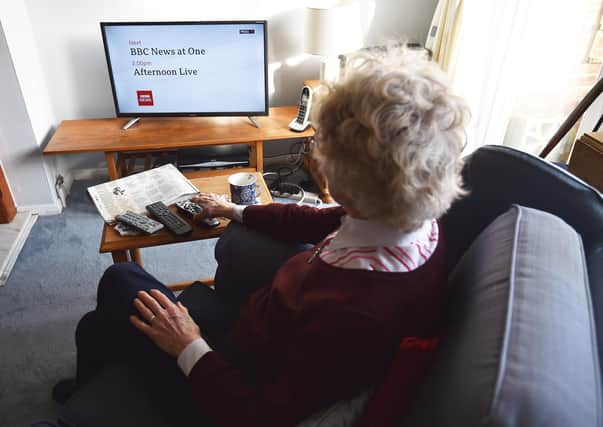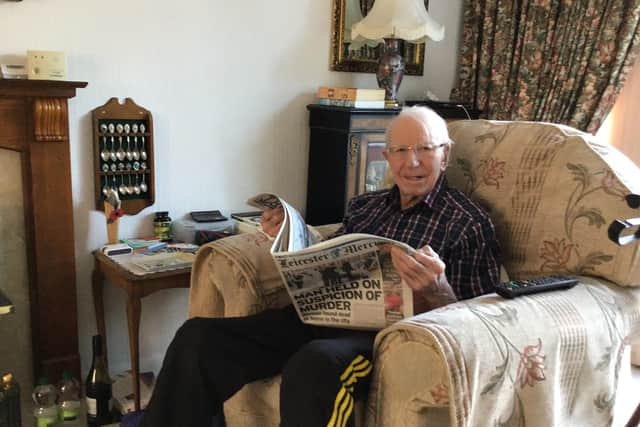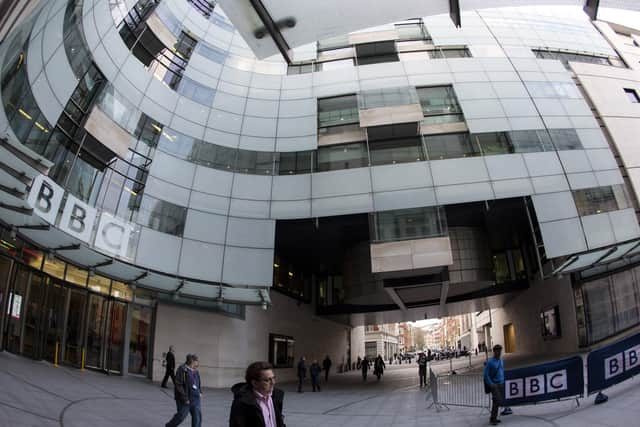How to reform BBC licence fee – John O’Connell


Whether it is negotiating a never-ending Brexit deal or the purchase of 40 million vaccine doses, Ministers have their hands full. Now another negotiation has started: the future of the BBC licence fee.
It was announced on Tuesday that Culture Secretary Oliver Dowden will be going eyeball-to-eyeball with Tim Davie, the BBC Director General, over not just the licence fee settlement from next year, but potentially the future of the fee itself (after the BBC Charter expires in 2027).
Advertisement
Hide AdAdvertisement
Hide AdFor the Beeb, the stakes couldn’t be any higher. During the election, Boris Johnson loudly and proudly declared his intention to ‘look at’ the licence fee.


Public support for the TV tax has plummeted, with TaxPayers’ Alliance polling from last year revealing that 68 per cent of working class voters backed abolishing it. Ridiculous BBC blunders, including meddling with the Last Night of the Proms, culminated in social media fury and damning attacks from Conservative MPs, like Yorkshire’s own Andrea Jenkyns.
And Auntie is almost out of options. The unstoppable growth of online streaming services has exhausted the credibility of the age-old argument that there is simply no other way to produce decent content than with a mandatory TV charge.
The Beeb realises that too, with their own commercial arm (which the new DG ran) selling BBC output to the internet platforms. On top of that, decriminalisation – which we expect to be announced in due course – will put the final nail in previous hopes of shifting the licence fee to some other form of tax, such as a nonsensical broadband tax. Tim Davie must realise that this negotiation could be make or break.
Advertisement
Hide AdAdvertisement
Hide AdBut the stakes are high for the Tories too. The extremely unpopular agreement between Ministers and the BBC to drag pensioners into paying the £157.50 licence fee has blown up in their faces.


With more taxpayers now facing the telly charge, Ministers are under serious pressure to get the cost down. So who will blink first? Perhaps everyone can win from this.
The TaxPayers’ Alliance have consistently campaigned against the criminal TV licence. We have long said it’s terrible value for money, resulting in skewed priorities and bloated BBC budgets, and should be abolished. But we can also see a future for public service broadcasting.
Other public service broadcasters such as ITV, Channel 4 and Channel 5 are primarily financed by commercial means. They are still able to produce content in the public interest and invest in British media.
Advertisement
Hide AdAdvertisement
Hide AdIndeed, Channel 5 chose to increase investment in UK-originated content shortly after being privatised. In recent years, the enormous success of documentary programming produced by the likes of Netflix, HBO and Sky has shown that the TV licence fee is not the only route to quality factual content in the public interest.
Sky’s dedicated arts channel has recently gone free to air, proving that arts programming can be commercially successful when done well.
BBC Radio is a case and point – there is no reason it should be taxpayer-funded, given it dominates with around half of the UK radio market and duplicates what many independent stations provide anyway (and crowds them out in the process).
The same goes for Channel 4, which already survives with ads – and had a £5m financial surplus in 2018 and cash reserves of £180m – but strangely is still backed by the taxpayer. The future of these broadcasters is online, subscription-based, privately-owned and globally competitive. Public service broadcasting is changing, and the BBC can change with it.
Advertisement
Hide AdAdvertisement
Hide AdThe opportunity for this win-win comes from the creation of a new Public Service Broadcasting Advisory Panel. With members from many different areas, including former government advisers, current Tory MPs, broadcasting execs and indeed former BBC employees, they must grasp the nettle on these questions.
In Oliver Dowden, the BBC has a Minister who values their output and wants them to survive and thrive. In Tim Davie, the Government has a Director General who understands commercial opportunities and value for money.
Auntie must be ordered to keep costs down to protect households from yet another painful rise in the licence fee; while the Government must avoid landing the BBC with commitments that will see it fall even further behind the streaming giants. We are looking to Davie and Dowden to deliver a fairer deal for taxpayers.
John O’Connell is chief executive of the TaxPayers’ Alliance.
Advertisement
Hide AdAdvertisement
Hide AdSupport The Yorkshire Post and become a subscriber today. Your subscription will help us to continue to bring quality news to the people of Yorkshire. In return, you’ll see fewer ads on site, get free access to our app and receive exclusive members-only offers. Click here to subscribe.
Comment Guidelines
National World encourages reader discussion on our stories. User feedback, insights and back-and-forth exchanges add a rich layer of context to reporting. Please review our Community Guidelines before commenting.